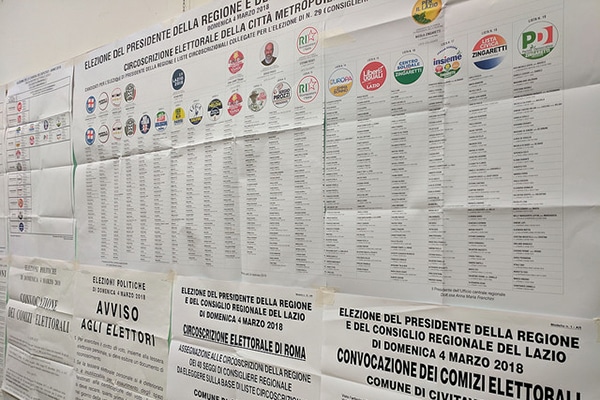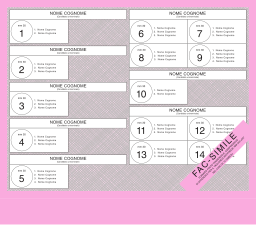Democracy in Italy: S2 Episodes 3 and 4
- Mary Leighton
- Jun 28, 2024
- 3 min read
Well, the prospect of US democracy surviving the year seems a little less likely, but this month I spent a enormously fun hour learning how the country that gave the world both Fascism and the original celebrity billionaire President is fighting back the forces of cynicism and corruption.
Yes, I just recorded a podcast about ITALY, with guests Federica and Piero!
Federica Bressan is a science communicator and author with a background in techno-science and music. She is multi-talented, with a published novel, a PhD in computer science, multiple degrees in music, and a background in science communication.
Piero Q.P. Carlucci. is more well-travelled than most anthropologists I know, and as such is the perfect co-host for a podcast on how to live abroad. You can find him on his own podcast, called “Una Vita De Lotano" or "A Life From Afar”.
Near the end of the conversation, Federica asked why I always interview non-experts. I want to know what democracy looks and feels like in practice rather than in theory, I explained. Voters make decisions according to how they think the system works, irrespective of how it actually works.
But I'm not uninterested in the actual details! So here are some of the best basic guides I could find in case you want to dig a little deeper too.
Quick history lesson
Want a time line? Try this one!
It's important to know that Italy wasn't a Nation State until the 1860-70s. Before, there was only a vast collection of republics and city-states that may or may-not be at war with each other.
Even after the 1870s - oh boy, was it really unified? Well, the answer is complicated enough that I had to write long A Level History Exam papers about it. Piero gets a few jokes in about this, but the point is... Italy may not have a "state v. federal rights" issue, but it certainly has a complex region versus nation issue that dates back centuries.
From 1806 onwards Italy had a Monarch and the 19th century featured parliamentary democracy and a colonial Empire. But the early 20th century saw the beginning what was to become the first fascist regime in Europe and by the 1940s the last king was exiled.
The"Partito Nazionale Fascista" rose to power in Italy in the 1920s, leading to a dictatorship (1922-43) led by Benito Mussolini's dictatorship.
Following Italy's defeat at the end of WW2 Italians voted in a 1946 referendum to become a Republic with a new Constitution and a Parliamentary Democracy.
From the 1990s Italian politics was dominated by Silvio Berlusconi, a billionaire "media mogul" who survived countless corruption and sex-scandals to spend two decades in politics, half of them as Prime Minister.
In 2022 Italy elected Giorgia Meloni, leader of the far-right party, as it's first female Prime Minister. But with The European Parliamentary Elections held just the week before we recorded this interview, there are fears that other European countries may soon follow Italy's lead.
Italy's Electoral System: It's Complicated!

Sooo... I'm not even going to try and describe it myself. I'm just going to link to this article from the Election Integrity Project.
Comparing this from 2018 with the graphics in this article from 2022, you can see the impact of the recent electoral reforms in making the system smoother. My poor dyslexic brain is having a meltdown trying to understand, even after the reforms.
In the podcast we talk a lot about the role of the President as a figure head, so it's interesting to note there is a bill being drafted just this week, that will change the constitution to reform the President's scope of power.
But I just want to note, thinking back to my episodes on South Korea, Italy's parliamentarians also seem to be getting into fist fights in the debate chamber of late. What's up with this trend?? (Incidentally this fight was inflamed by an argument about regional autonomy. See above on the unification question!)
About Those Ballots
We talk a lot about the ballot papers in the podcast so I collected up a few images here, and there is a walk through described on this blog.
It's Not Just The Mafia: The Cocaine Trade is Taking Over Europe
Listen to our episodes about Mexico, and compare what Italy has done to control the Mafia, with what David and Brenda describe as the Drug Cartels' ongoing destruction of democracy in Mexico.
There would be no drug trade without consumers, of course. Here are the articles I reference at the end of this podcast about the growing cocaine trade in Europe, and fears that a country like the Netherlands is at risk of becoming a European narco-state.


















Comments